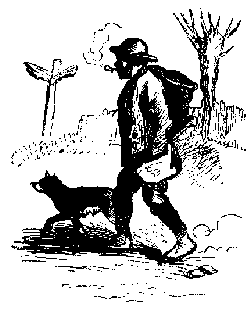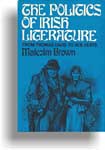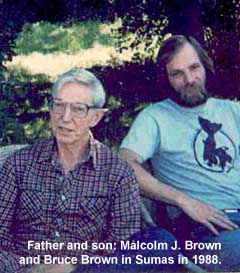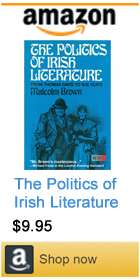Chapter Twenty-two
Catastrophe
THE UNION OF HEARTS surrendered the momentum of the Parnellite resurgence. Under the newest Whig alliance, the field command of Irish affairs passed out of Parnell's hands and into Gladstone's. Within his natural limitations, Gladstone made a superb Irish general; and yet-who could deny it?-it was an incongruous role for even the friendliest Englishman. Meanwhile, the breathing spell that resulted from the Union of Hearts allowed the Unionists time to venture out with their own potent weapons: divide and rule and counterattack.
After the defeat of the first Home Rule bill Parnell fell ill of rheumatic fever. He was bedridden for a long time, and Tim Healy thought he might die. When he had recovered, he kept in seclusion. As he saw it, his task was once again to wait. In six years or perhaps sooner, there would be another general election, and if Gladstone should be returned, Home Rule would once more come alive. His seclusion was troubled, though, for his enemies decided to smoke him out.
The agrarian issue flared up again. The fifteen-year term for the judicial freeze of rents proved too long. Agricultural prices after 1881 continued to decline, then in 1886 they suddenly plunged 30 percent. Judicial rents had once more become rack-rents, just like old times. Parnell introduced a new land bill in the summer of 1886, and when it was duly defeated by the Salisbury government, the Irish party lieutenants went into action on their own responsibility. William O'Brien and John Dillon reignited the land war with a new offensive, the "Plan of Campaign."' Under this scheme, distressed peasants were to offer the landlord what they considered a fair adjusted rent. If he refused the offer, they would pay him what they had offered, and would deposit the difference in a general war chest to be used to fight evictions. Parnell said later that he was not consulted or even informed until the Plan of Campaign had been in operation for some months. He disapproved, he said. In his opinion, every action that did not directly advance Home Rule was improper, and he declared, "If I had been in a position to advise about it, I candidly admit to you that I should have advised against it."
II
Salisbury replied to the Plan of Campaign with the unoriginal formula, conciliation plus coercion. Parnell's land bill was copied, reintroduced as a ministerial measure, and passed. Simultaneously, Arthur Balfour, the new Irish chief secretary, introduced a coercion bill containing all the advanced modern features of Gladstone's Crimes Act of 1882-suspension of habeas corpus and trial by magistrate instead of by jury, plus a novel feature, perpetuity. So extreme a measure was not expected to be wholly palatable even to the English public. In the midst of the House debate on Balfour's bill, the London Times in a spirit of helpfulness began a series of feature articles entitled "Parnellism and Crime," stirring the misty memories of battle alarms in the Mayo land war. The series reached a climax on April 18, 1887, timed to the second reading of the crimes bill, in a sensational document, a facsimile of a letter signed "Chas. S. Parnell," stating that his public denunciation of the Phoenix Park murders was not sincerely intended and approving the murder of Thomas Burke as "no more than his deserts." One of Barry O'Brien's friends in the Liberal party picked up the Times that morning on his breakfast table. "The first thing which met my eye was that infernal letter," he said. "Well, I did not much care about my breakfast after reading it. 'There goes Home Rule,' said I, 'and the Liberal Party too.'"
A casual glance at the facsimile suggests imposture. It was written in two different styles of penmanship. With the sheet folded in the middle to make four pages in the way of old-fashioned letter writers, it carried the message on page one and the signature isolated on page four. The Times explained that this oddity was "an obvious precaution" by which "the half-sheet might if necessary be tom off and the letter disclaimed." It also directed the reader's attention especially to two scratched out words as "undesigned proof of authenticity." In anticipation of Parnell's denial of authorship, the Times said ominously: "We possess several samples of the member for Cork's undoubted handwriting and signature," i.e., other incriminating letters. It dared him to bring suit for libel.
The letter really was a forgery, a fact about which Parnell naturally felt well assured in his own mind. He said to Mrs. O'Shea in that unfortunate private language of the Eltham household that she later made the world's property: "Wouldn't you hide your head with shame if your King were so stupid as that, my Queen?" He was troubled, however, about proving the forgery to the public. Although botched, its cleverness was striking, too.
It was plainly the work of some imaginative person, some miscast novelist who was at the same time intimate with Irish generalship in the land war. Hence, the letter had the quality that one of the conspirators later called "intrinsic probability"; that is, it sounded exactly the way Parnell's enemies thought he ought to sound.
Parnell refused the Times's invitation to sue, and there the matter rested. A year passed, and in June 1888 Frank Hugh O'Donnell emerged out of retirement in Germany and instituted the lawsuit that Parnell had avoided. The motive is a mystery, for his stated explanation is decidedly unhelpful: ". . . the attacks of the Times upon the Parnellites had the unexpected result of forcing me to bring an action for libel against the mighty newspaper. " Parnellites have always suspected that he must have been working for Chamberlain. But no conclusive evidence is at hand, and Healy's explanation of the motive was about as good as any: O'Donnell was "off his nut..."
|
|
Table of Contents
|

|
Astonisher.com is pleased to offer these excerpts from The Politics of Irish Literature by Malcolm Brown...
Praise for
The Politics of Irish Literature |
 |
|
"This brilliant study of the intersection of politics and literature in Ireland amounts to a dazzling portrait gallery. Reading it one feels about one the breath, warmth, and passions of the dead all come alive again."
-- Sean O'Faolain in the Manchester Guardian
"Mr. Brown's masterpiece has made me want to hire a nearby housetop and recite whole chunks to every passerby..."
-- Michael Foote in the London Evening Standard
"The author of the best book on George Moore now gives us what is in all likelihood the best book on the politics of modern Irish literature."
-- Virginia Quarterly Review
|
|

University of Washington Professor Malcolm J. Brown (1910 - 1992) with his son, Bruce Brown, in Sumas, WA, July 1988.
|
Additional reading -- Malcolm Brown's George Moore: A Reconsideration. Also see Bruce Brown's commentary on The History of the Corporation for Malcolm Brown's contribution to that work.
|
|
|






